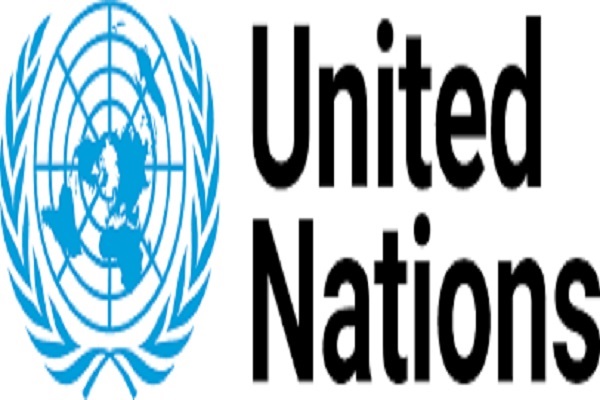The United Nations Resident and Humanitarian Coordinator in Nigeria, Mathias Schmale, has said Nigeria needs to increase investment in basic education and primary healthcare to achieve goals 3 and 4 of the Sustainable Development Goals (SDGs).
Schmale, who spoke at the official launch of the Reports of Independent Evaluation of Sustainable Development Goals three and four by Vice President Yemi Osinbajo, in Abuja, said Nigeria needs to increase its budgetary allocation to the education sector from seven to 20 per cent in order to achieve SDG 4-universal, inclusive and equitable basic education for all school-age children by 2030.
He said the reports could be described as the first of their kind in Sub-Saharan Africa, saying they indicate Nigeria’s determination to establish robust institutional monitoring and support frameworks at national and sub-national levels.
“While the findings of these evaluations show some improving health and education outcomes in Nigeria, the reports also contain some worrying analyses.
“In relation to SDG-4 on quality education, it is, for example, concerning to note that Nigeria is unlikely to achieve the global agenda for universal inclusive and equitable basic education for all school-age children by 2030 if the current very low public investment in the education sector remains the same.
“The evaluation indicates that the right policies (especially around free basic education and gender) are in place but an increase in quality and access to education is critical. In the 2022 budget, there was an increase to 7 per cent on education but the evaluation says it will need to increase to 20 per cent with clear accountabilities on delivery,” he said.
The diplomat pointed out that the country’s funding of health is inadequate, saying: “Similarly, government resources for health financing are inadequate for the achievement of SDG-3 targets related to good health and well-being.
READ ALSO: EKSU slams ASUU President, says varsity not quack
“It is good to see that the recommendation of revitalizing the Primary Health Care has already started and its effectiveness will be enhanced with a clear plan and accountability on human resources and financing at state level.”
Schmale further pledged the UN’s support to Nigeria, saying: “We are keen to identify truly transformative initiatives that will catalyse tangible change in the lives and livelihoods of the Nigerian people. This new data will help determine which health and education programmes are really moving the needle. We can then look to expand, renew, and replicate them.”
On his part, the keynote speaker, Osinbajo, said Nigeria will leverage existing institutional framework to promote stronger partnerships and synergies among stakeholders to achieve the SDGs.
The Vice-President added that it was crucial to build the requisite commitment and incentive to prioritise and increase basic educational financing up to 12 per cent at all levels.
He said: “The timing of the use of appropriated funds is also important. State governments should take advantage of the UBEC matching grants by making the required contributions.
“Educational stakeholders are encouraged to develop and strengthen coordination mechanisms that can help tighten the collaboration with information sharing between federal and the state on the one hand, and non-state actors on the other hand.”
Osinbajo noted that achieving inclusive sustainable development is in tandem with the Buhari administration’s desire to lift 100 million Nigerians out of poverty in 10 years.
According to him, that is why the FG established several programs to support the acceleration of the achievement of the SDGs.
The VP also noted that the findings of the evaluations reinforce the evidence for improving health and educational outcomes in Nigeria.
He promised that the FG will keep promoting strong partnerships and facilities amongst its ministries, departments and agencies, and between development departments for coordinated implementation of SDGs in Nigeria.
Also speaking at the event, the Senior Special Assistant to the President on SDGs, Adejoke Orelope-Adefulire, said periodic evaluation was necessary to implement the SDGs effectively.
She described the two reports as products of a series of efforts coordinated by her office in close collaboration with the Federal Ministries of Finance, Budget and National Planning, Health and Education, with the support of the United Nations Children Fund in Nigeria.
- Tinubu: APC correcting PDP’s mess in 16 years’ regime - September 5, 2022
- Oil marketers embark on strike in northern states over N70bn claims - September 5, 2022
- FG files fresh charges against Abba Kyari, Ubua, seizes properties - September 5, 2022










